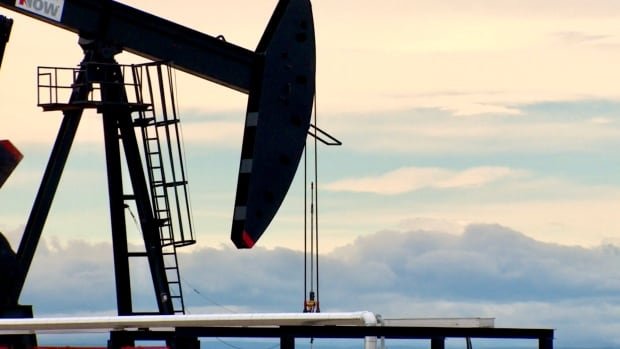Ever since Russia invaded Ukraine in February 2022 and oil prices soared around the globe, the oil industry has enjoyed three highly lucrative years with historic profits.
The sector is still posting robust profits, as seen this past week when companies unveiled their most recent quarterly earnings.
Still, the days of oil companies being compared to broken cash machines, is likely coming to end.
Oil prices are sliding and many experts are predicting the value of oil could fall further over the next year or two. That’s because oil production around the world, including in Canada, is growing faster than the world’s consumption is climbing.
In 2022, the benchmark North American oil price, a crude blend known as West Texas Intermediate or WTI, was changing hands for more than $120 US per barrel at its peak.
Last week, that same barrel was trading for just $67 US.
“Both investors and companies have become used to these [high] prices,” said Raoul LeBlanc a Calgary-based vice-president at S&P Global Commodity Insights.
“Whereas five years ago, let’s say 2017, 2018 and 2019, prices at $62 would have seemed fantastic,” he said. “They don’t seem fantastic now.”
The drop in prices is already visible at gas stations across the country as the average price of regular gasoline is $1.53 per litre, down from $1.77 in April, according to data from Natural Resources Canada.
The period of high oil prices coincided with a trend in the oil industry when companies slowed their growth plans and instead focused on giving money back to shareholders.
The sector underwent a metamorphosis, said LeBlanc, and is no longer as cyclical as in the past nor does it try to grow oil production without constraint.
“They passed the first test, which is: Do you have discipline in a time of plenty?” he said. “I like to say the industry has become somewhat boring and profitable and congratulations are in order.”
Now, with lower oil prices expected, the industry will face another test of still producing juicy profits for investors and potentially pull back on growth plans even more, said LeBlanc.
The largest Canadian oil producers are still posting relatively large profits as they have a breakeven point in the low-$40s US per barrel for WTI.
Over the last week, Imperial Oil reported a third-quarter profit of $1.24 billion US, down from $1.60 billion in the same quarter last year, while Cenovus Energy announced a quarterly profit of $820 million US compared to $1.86 billion US a year earlier.
Several companies have voiced confidence in their cost-cutting efforts, debt repayment and reduced spending since the pandemic have prepared the industry in case prices continue to fall.
“Balance sheets are in a lot better shape. We’ve definitely seen them improve over the last couple of years,” said Michael Berger, a Calgary-based analyst with Enverus.
Oil production continues to rise around the world and could increase further if OPEC and its allies move away from previously announced production cuts that have propped up prices.
Meanwhile, the world’s demand for oil is growing at a slower rate than experts had predicted this year. Many countries are facing economic challenges including China, where factory activity has shrunk for five consecutive months.
“What OPEC ends up doing in 2025 will influence the market,” said Berger. “Outside of that, what our clients are asking about is Chinese demand [for oil] and what that looks like next year.”
Canadian oil producers would be able to mitigate some of the financial impact of cheaper oil prices because of the relatively low loonie. The completion of the Trans Mountain expansion pipeline in May has also provided a boost to Canadian oil prices.
Source link
